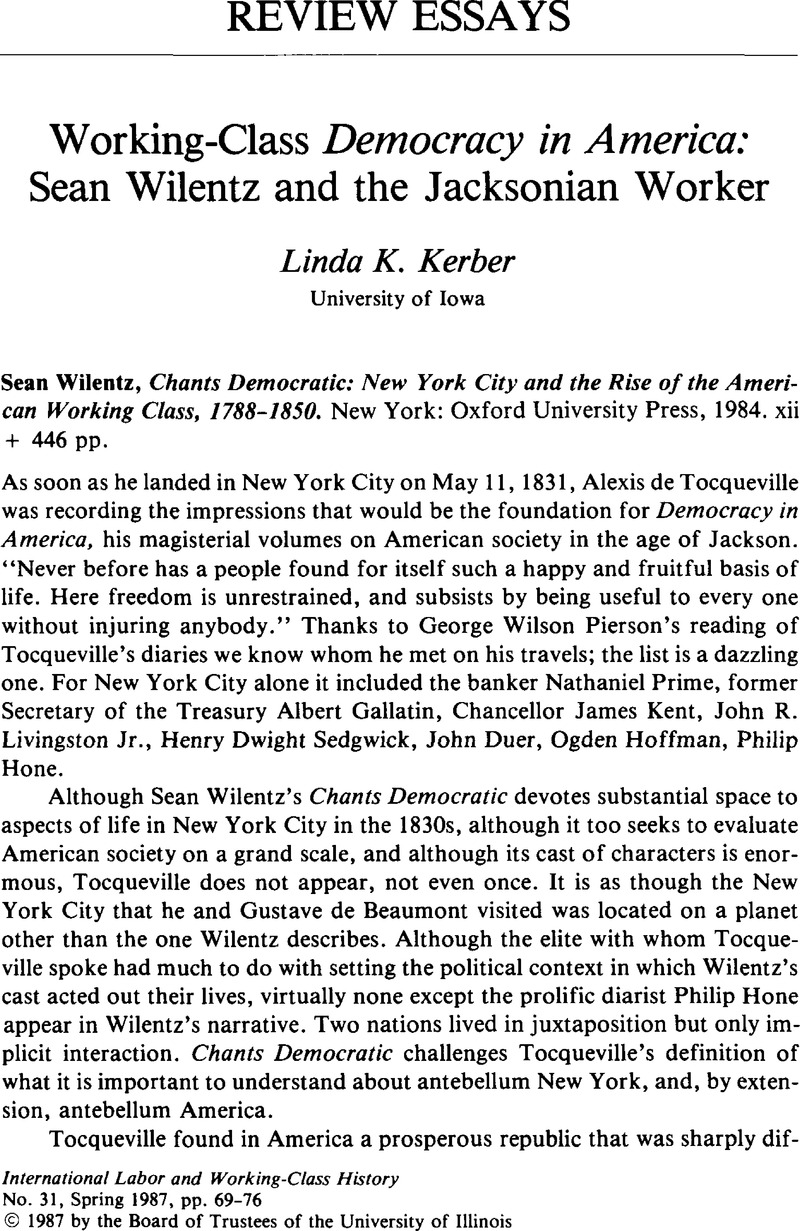Article contents
Working-Class Democracy in America: Sean Wilentz and the Jacksonian Worker
Published online by Cambridge University Press: 16 December 2008
Abstract

- Type
- Review Essays
- Information
- Copyright
- Copyright © International Labor and Working-Class History, Inc. 1987
References
NOTES
1. Wilentz would argue that when republican rhetoric is heard later in the nineteenth century it is neither conservative nor nostalgic, but intended to present a serious alternative to capitalist domination of the political conversation and as an alternative to capitalist assertions of hegemony.
2. The alienation between masters and journeymen is suggested by their alternate understandings of the usefulness of temperance. For masters, temperance was part of a larger effort to regularize the work force and alter the traditional work rhythms of the old artisan culture. But when journeymen espoused temperance, they did so as an effort at mutual aid and self-help, and offered alternate forms of frivolity rather than “pious coercion.” (149ff, 306ff)
3. See as corrective Smith, Billy G., “The Material Lives of Laboring Philadephians, 1750–1800,” William and Mary Quarterly, 3rd ser., 38 (1981): 163–202.CrossRefGoogle Scholar
4. See, for example, 33, 247. Wilentz, however, may be less at fault in the romanticization of the early republic than some of his reviewers.
5. A Vigorous Spirit of Enterprise: Merchants and Economic Development in Revolutionary Philadelphia (Chapel Hill, 1986), 17.Google Scholar
6. Nash, Gary B., “Forging Freedom: The Emancipation Experience in the Northern Seaport Cities, 1775–1820,” in Slavery and Freedom in the Age of the American Revolution, ed., Berlin, Ira and Hoffman, Ronald (Charlottesville, 1983), 3–48.Google Scholar
7. It is the practice of the editorial page of New York's most important newspaper to award metaphorical “apples” and “worms.” I award an apple to Oxford University Press for placing the footnotes at the bottom of the page, where they belong and where they can engage the reader in the process of establishing the conclusions offered in the text. But Oxford also gets two worms. One is for a boilerplate dust jacket. The other is for placing Wilentz's well-chosen illustrations in a miscellaneous group in the middle of the book rather than at the spots where they would reinforce the argumentation, and for failing to accompany the visual evidence with full citations.
- 2
- Cited by




